
Browse our fun-packed, helpful plant-based articles, and delve deeper into this healthy, sustainable lifestyle!


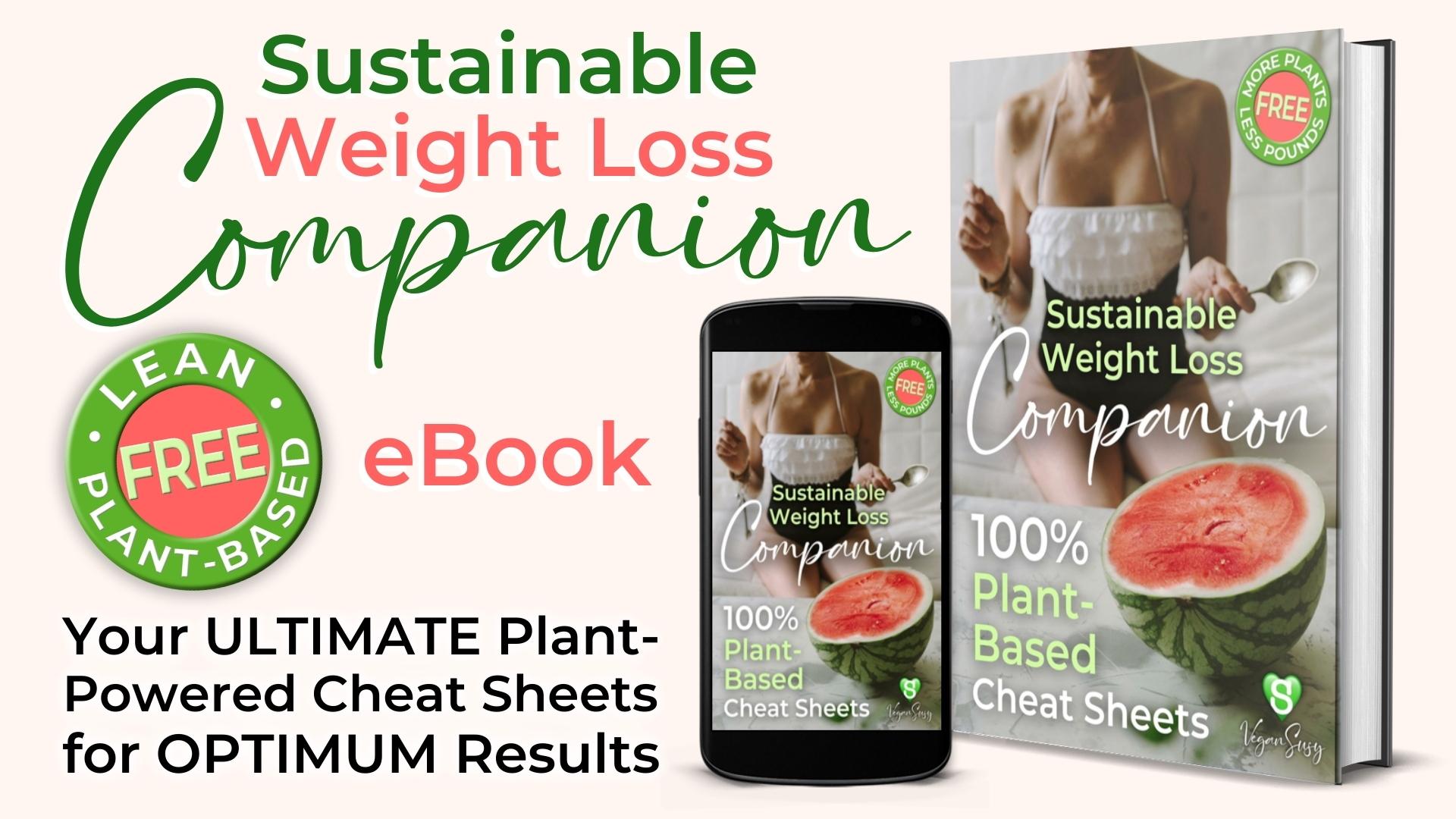

Fostering a Positive Relationship with Food as a Vegan
Plant-Based Weight Loss For Women
Author: Plant-Based Susy
Food is an essential part of life. It gives your body the nourishment it needs to thrive and it can enhance your quality of life and well-being. A healthy and positive relationship with food is a must, no matter your dietary lifestyle.
You can indulge in foods you once considered unhealthy in a way that works for you once you change your mindset.
Whether you went vegan or want to go vegan with your health in mind or as an animal rights activist, building a healthy relationship with food on a plant-based diet is the key to your success. Many factors can help you make this change, but it all comes down to listening to your body and changing your mindset.
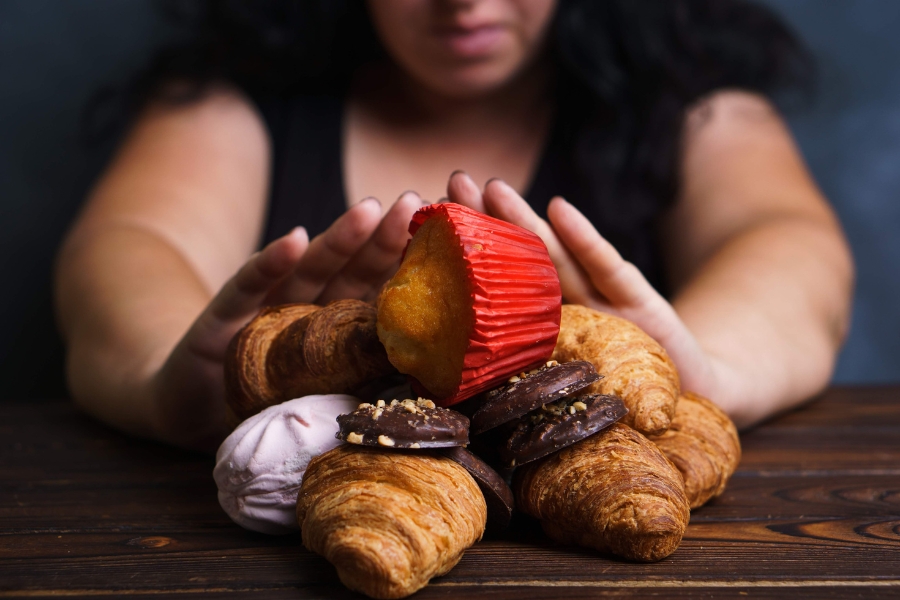
Table of Contents:
How can you tell if you have a poor relationship with food?
The first step in fostering a positive relationship with food is to realise there's a problem. If you've noticed a pattern of guilt surrounding mealtime, food restriction, or overeating, you likely don't have a great relationship with food. As Healthline explains, signs of a bad relationship with food include:
Not listening to your body's natural hunger cues
Feeling guilty about the foods you consume
Feeling guilt about eating
Restricting and avoiding foods
Binging foods
Labelling foods as bad
Overusing calorie counting apps and letting them determine your food choices and eating habits
Following fad diets or yo-yo dieting
Eating out with others gives you lots of stress and anxiety
These factors might not always be present, and sometimes just one of them occurs. You might go through phases of feeling comfortable eating and being kind to yourself, and then, out of the blue, the bad habits return.
Improving your relationship with food might take time, but the goal is to build up positive experiences and ditch the negative ones until you feel confident and happy eating. This process will take time, and it's essential to be patient with yourself and the results you’re reaching for.

What makes a good relationship with food?
You don't have to be perfect to have a good relationship with food. You can give in to late-night cravings and enjoy foods that aren't as nutritionally dense because you like the taste of them. That's okay, and it's actually a really positive mindset to have. Being really strict and labelling foods as bad is not sustainable.
A good relationship with food may look different for you than for someone else. The big thing here is to enjoy food and consider what it does for you rather than holding onto negative views. There are plenty of signs of a good relationship with food, including:
Not obsessing over calories
Eating all the foods you enjoy in moderation
Eating foods that make you feel good
Not attaching your self-worth to the foods you eat
Giving yourself the freedom to eat what you want
Listening to your body
Becoming in tune with your hunger cues
Not attaching value to foods
Not living your life based on a number on a scale
Eating when you're hungry and stopping when you've had enough
Ignoring comments from others surrounding food or your body
If you've been struggling with your relationship with food for a while, then looking over this list might feel overwhelming. You may be wondering how you can make these signs of a positive relationship with food your reality. Maybe you’ve tried before and haven’t had any luck. Give yourself a break and understand you can get there.
As with any other relationship, things will not change overnight. You will need to put in effort and be patient with yourself. When you notice you’re overthinking things or being unkind to yourself, pause and regroup. Part of the battle is noticing when you're in the middle of an unhealthy habit and working towards breaking this cycle. There might be bumps in the road, but you can do it.
What does building a healthy relationship with food on a plant-based diet look like?
One of the most important relationships you'll have to navigate throughout your life is your relationship with food. A healthy relationship with food will look different from person to person. With some effort and patience with yourself, you can heal your relationship with food for holistic emotional well-being on a vegan diet.
As a plant-based eater, you often have to consider what you consume, which makes developing a healthy relationship with food more challenging. While you may have to follow rules regarding meat or dairy consumption, try not to be too strict with yourself. You don't need to make perfect food choices all of the time.
Of course, you want to be sure you're getting the proper nutrients, like protein, but your diet doesn't need to be something you think about constantly.
There are a few things to consider when working towards a positive relationship with food. Remember to be patient with yourself while you develop these new healthy habits.
Don't put a moral value on different foods
Stop looking at foods as good or bad. This is a hard habit to break, but ditching the guilt you feel when you eat is a big part of fostering a positive relationship with food. Just because one food may contain more calories than another doesn’t make it bad. While some foods might not work for you and your goals, that doesn’t take away or add any moral value.
It's pretty natural to assign moral value to food. This may look like labeling something as ridiculously healthy and forcing yourself to eat something you don't love just for the benefit you think it gives your body. More commonly, it appears in the moments you skip certain treats or carb-loaded dishes just because you've been told they're bad for you.
Even if you stop believing in bad foods, you will always be surrounded by people or absorb social media content that promotes moral values regarding food. You will continue to see this around you, but you don't have to let it affect your relationship with food. Be stronger than these systems that tell you some foods are great for your body while others are awful.
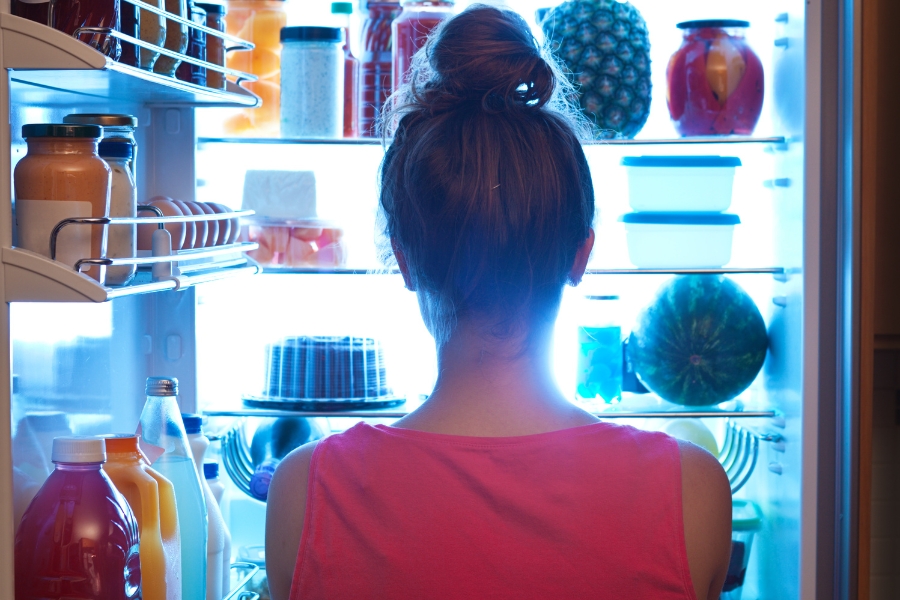
Permit yourself to eat when and what you want
Sure, you may skip out on foods that aren't plant-based if you're following this lifestyle, but beyond that, it's essential to try to come to terms with the fact that no foods are off-limits. You're allowed to have sugary treats or fatty foods without feeling guilty.
When trying to lose or maintain weight, it's easy to create strict rules. You may limit calories or fit your eating times into a window you believe will help you reach your goals. While it's okay to create healthy weight loss habits and stick to them, it’s unhelpful to be super uptight about it. Doing so often leads to feelings of deprivation or fear of eating certain foods.
You can eat food and indulge in the flavors you love without being mean to yourself. You don't only deserve food; you need it to thrive. Food isn’t something you have to earn either. It can be challenging to change this mindset, but it's one of the most significant parts of building a positive relationship with food on a plant-based diet.
Listen to your body and eat when you're hungry
When we are little, we are often forced to eat everything off our plates, even when full. We also live in a world where ingredients can be expensive, and in the hope of not being wasteful, we may eat more than our bodies are telling us to.
For whatever reason, as people age, they often become somewhat numb to the feeling of fullness. This also appears when we ignore our hunger to stick within calorie restrictions or other rules we've placed on ourselves.
Try to get back into what was once natural and genuinely listen to your body and the hunger cues it's trying to give you. This may mean pausing as a meal goes on to consider if you're hungry or full.
This also means when your body is telling you to eat, don't ignore it. You can reach for a nutritionally dense snack if you're worried about it, but there's a reason you feel the way you do.
Stop comparing yourself to others
Social comparison is a part of life and a natural cycle. Diet culture takes this concept and blows it out of proportion. We stop listening to our bodies and worry about what another person might think about what or how often we eat. We get sucked into dietary trends and yo-yo diets because they work for the skinny fitness gurus on your social media feed.
The last thing you should do is feel guilty when you compare yourself to another person. Comparing yourself to others will happen, but avoid doing so when you notice it. How your body looks, and your foods have nothing to do with your worth. Just because someone else might fit into a beauty standard you don't feel like you do does not make them any more valuable than you.
There are many different body types, and bodies absorb food in different ways. Even if every single person in the world followed the same diet and fitness plan, we would all still look very different. Comparing yourself to others does no good. Instead, focus on what your body needs to look and feel its best, and trust that truth.
This goes both ways. When you see someone indulging in some tasty food or someone who may be larger than you, please don't assume they have a terrible relationship with food. If you know someone who is slim and only ever eats leafy greens or vegetables in front of you, that doesn't mean they automatically have a good or bad relationship with food. All you can do is focus on your choices and do what’s right for you.
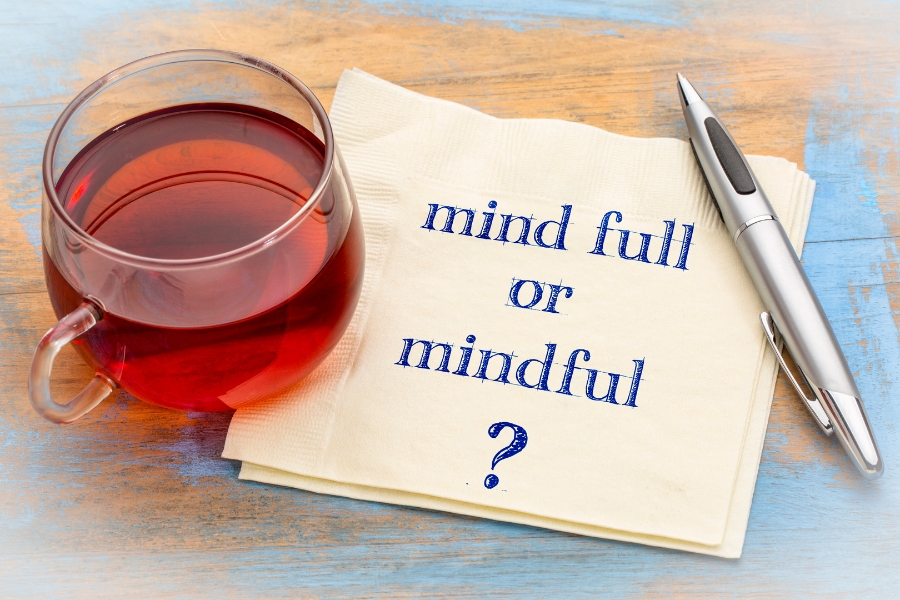
Following an intuitive eating mindset to building a healthy relationship with vegan foods
How often do you eat dinner in front of a screen or with your nose in a good book? With only so much time in a day, when you get home from work, you probably want to pick up one of your favourite hobbies while eating dinner, but this habit is likely hindering the enjoyment that comes with eating.
Mindful eating is one of the most important parts of fostering a positive relationship with food. Ditch the distractions, like scrolling on your phone, and think about what you're eating. Enjoy the flavors and textures of your food. Pay attention to your feeling of hunger going away as you head towards the feeling of fullness.
There are many benefits to mindful eating, including better digestion, less stress, making healthier food choices, increased appreciation for food, being more satisfied with meals, and eating less due to eating slower. Mindful eating can also help break the habits of emotional eating and binge eating.
The 7 practices of mindful eating according to Savor: Mindful Eating, Mindful Life are:
Honour the food
Engage in all senses
Serve in modest portions
Savour small bites and chew thoroughly
Eat slowly to avoid overeating
Don't skip meals
Eat a plant-based diet for your health and for the planet
While you first figure out how to eat mindfully it can be helpful to ask yourself some questions. Does this dish bring you joy? How do you feel about this style of cuisine? Does the food you're eating satisfy your craving?
You can answer these questions in your head, out loud, or by writing in a journal. Be kind to yourself during this process, and release any feelings of judgment you may have.
You have the power to develop a positive relationship with food
While this may be a journey, it doesn't have to be difficult to heal your relationship with food for holistic emotional well-being on a vegan diet. Just because you have to consider the foods you eat more often than others might doesn't mean you need to focus on food in a negative way.
Ditch the guilt and shame you've been taught are expected, and think of how food is healing and beneficial to your body.
Conquering a lousy relationship with food can come with many fears. If you've only ever known what it's like to overthink what you eat and treat yourself poorly regarding your diet, it might be a difficult road ahead. Just because it's going to be hard doesn't make it impossible.
You're the one putting labels and moral values on your food, so the change must start with you. Be open-minded about food and stop restricting yourself. Think about how great food is and its purposes, from making you feel good to fueling your everyday life.
Frequently Asked Questions
What influences how we eat?
Many factors influence food decisions and how we feel about food. These factors include influence from friends and family, social life, socioeconomic status, and even psychological factors. Social media and advertising tend to impact food choices, as do emotions and the craving for a flavorful bite to eat.
What else can you do when building a healthy relationship with food on a plant-based diet?
Beyond the above mentioned factors, it's also helpful to find exercises you love and enjoy doing. Movement is a big part of toning up on a plant-based diet and will help you reach a point where you don't feel the need to be so strict with yourself regarding your dietary choices.
Working out is a positive thing you can do for yourself and may encourage you to make other beneficial changes.
What is food positivity?
Food positivity is a way of looking at food in a positive way instead of the normalized feelings of guilt. This means discussing food in a kind way and breaking free from the idea of junk food or foods being "bad" for you.
Of course, some foods carry more nutritional value than others, but it's not helpful to view less nutritionally dense foods in a negative way. Focus on how certain foods bring you joy or benefit you physically instead of thinking of the negative side.
How does mindful eating help build a positive relationship with food?
Mindful eating encourages you to enjoy the foods you prepare. This mindset can help you learn to trust your own decisions and savor not only your food but also the moment you're in. Mindful eating helps reduce mindless eating and builds the habit of listening to your hunger cues. This habit leads to a higher level of wellbeing.
How do I overcome social pressures about my vegan diet?
Focus on your values, set boundaries, and prioritize your well-being.
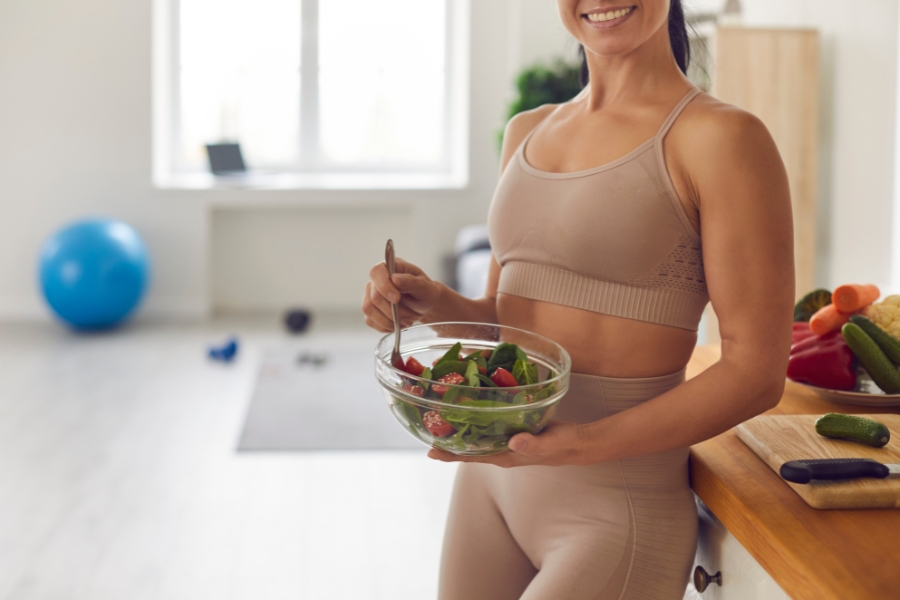
The Bottom Line
If you feel your relationship with food is too challenging to conquer alone, that's okay. We've been eating every day of our lives and have had plenty of time to develop bad habits and negative mindsets that are difficult to break alone. Professional help might be the best move for you. This assistance may come from a therapist, dietitian, or doctor.
💚 "Happy Plant-Based Eating & Exercising!" 💚

Plant-Based Susy
Plant-Based Nutrition Professional & Weight Loss Coach
Empower Yourself: Embark on a Delicious Fat Loss Adventure

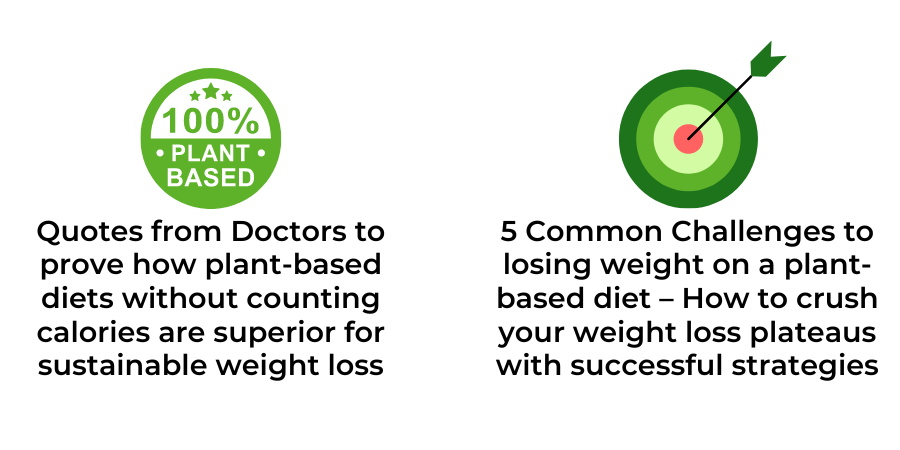
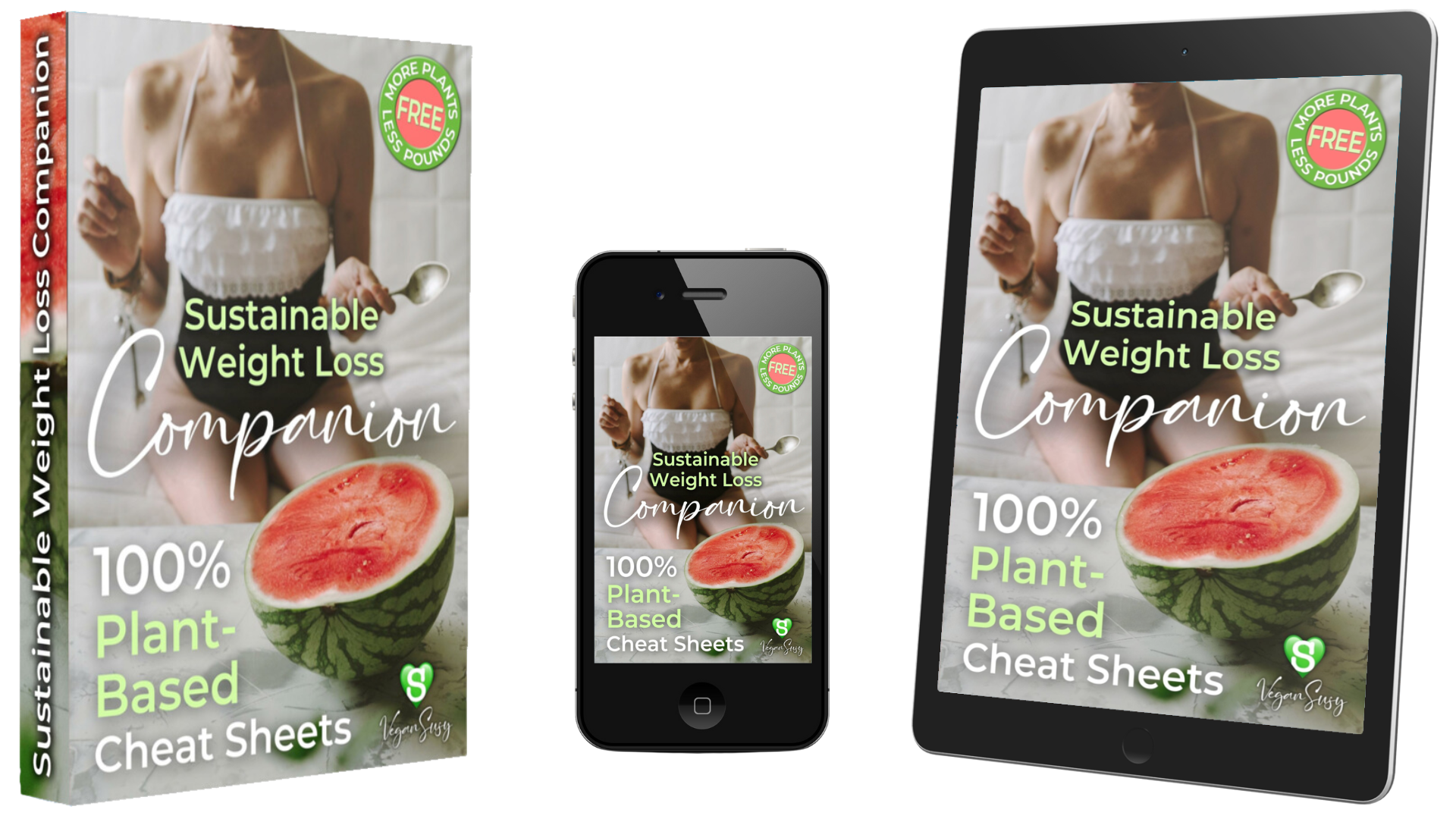
🍉 Get Ready to Jump Start Your Fitness Goals AND DISCOVER A HEALTHIER YOU!
🍉 Let's Make Your Fat Loss & Optimum Health Journey a Delicious Success Story!
🍉 Get The FREE Sustainable Weight Loss Companion eBook and CHEAT SHEETS!
More Free Resources
Unlock Your Transformation Today!
© 2025 VeganSusy Ltd. All Rights Reserved


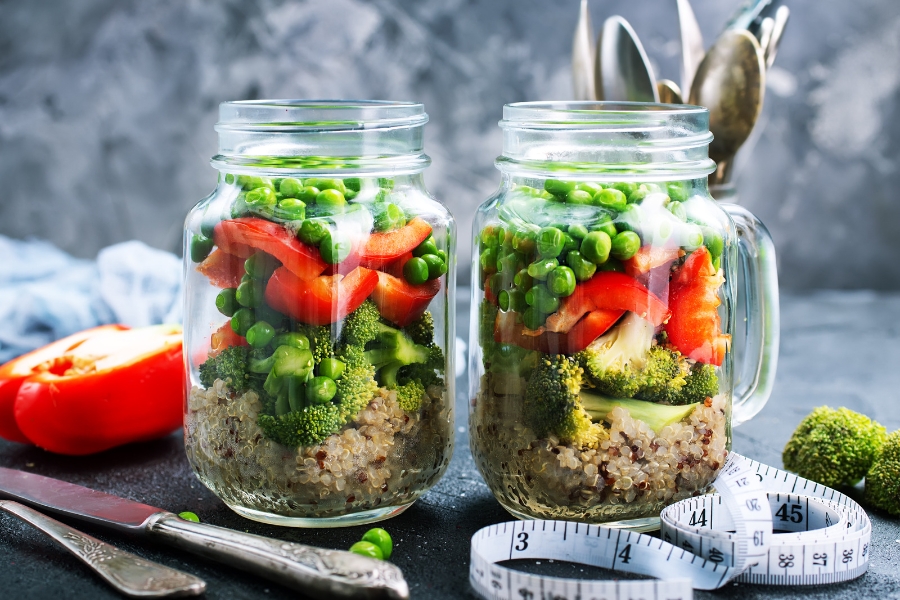
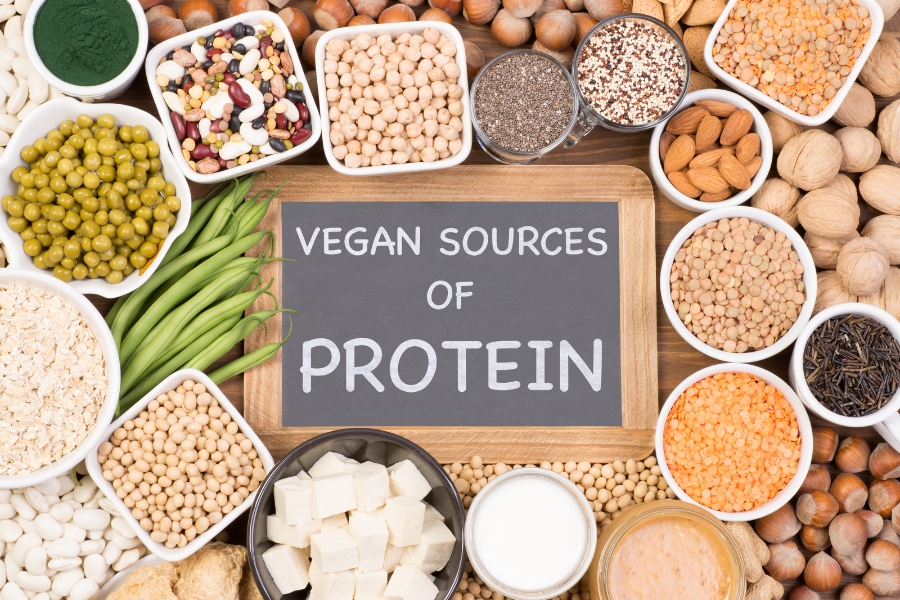

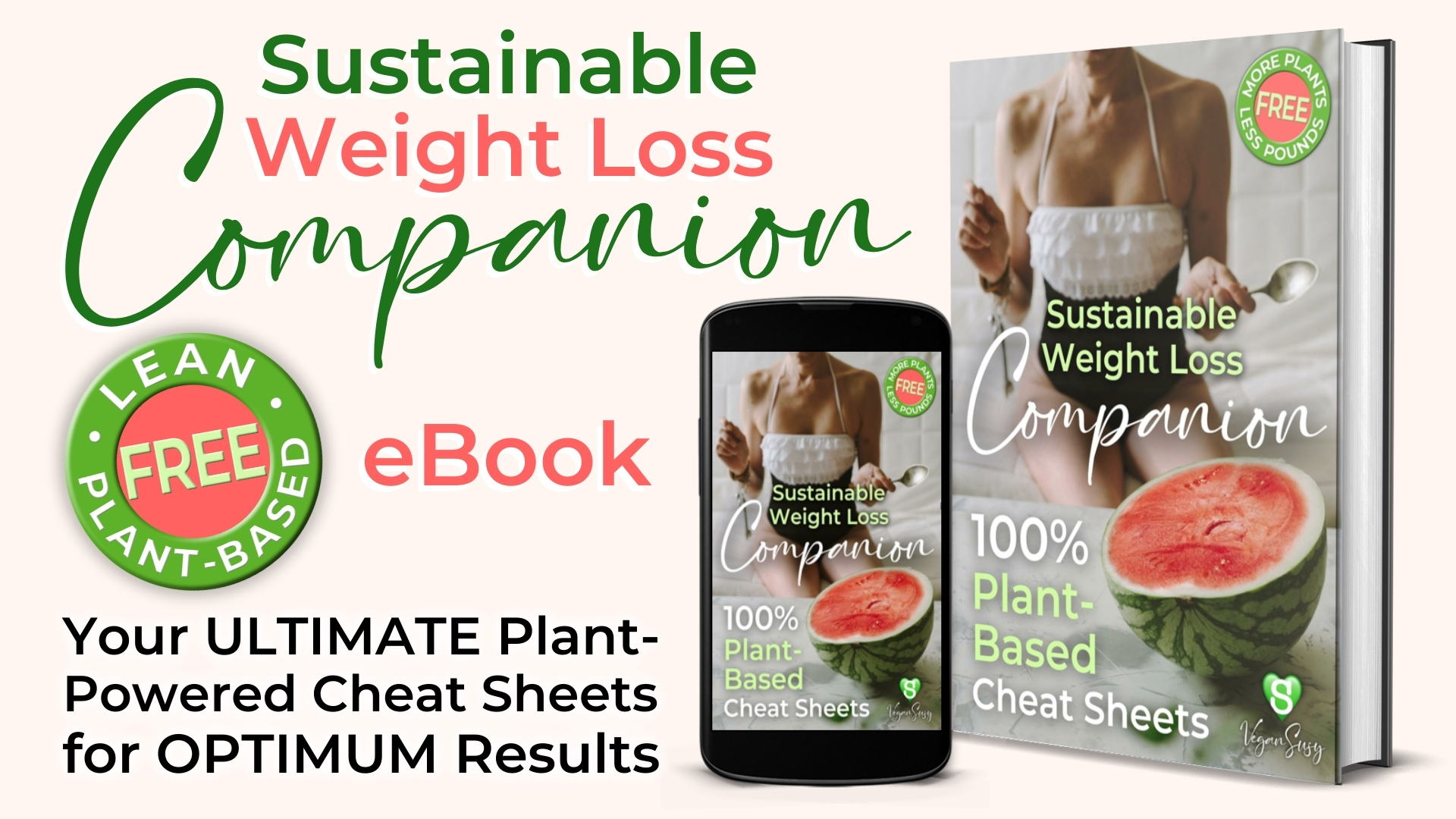





Facebook
Instagram
Youtube
Pinterest